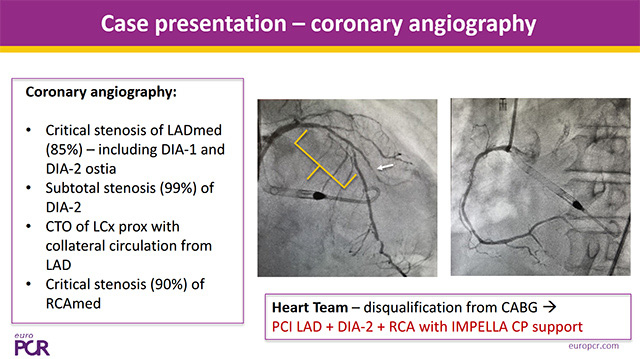3137 results for «471»
3137 results
Align for the future with the Myval Octapro transcatheter heart valve series
20 May 2025 – From EuroPCR 2025
This EuroPCR 2025 session offers a practical and evidence-based update on the Myval Octapro THV. Learn step-by-step techniques for valve-in-valve TAVI using the OctaAlign approach, and understand how intermediate sizes and precise deployment contribute to optimised hemodynamics and long-term durability.
Clinical insights are backed by key data...
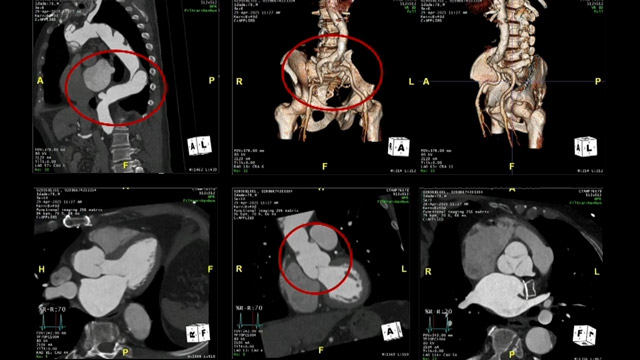
CTO PCI with Asian flavour
20 May 2025 – From EuroPCR 2025
Learn contemporary tips and tricks for chronic total occlusion (CTO) percutaneous coronary intervention (PCI) with an emphasis on specific algorithms to enhance procedural efficiency and safety. This session addresses overcoming obstacles in antegrade and retrograde approaches and managing potential complications through real-world case examples.
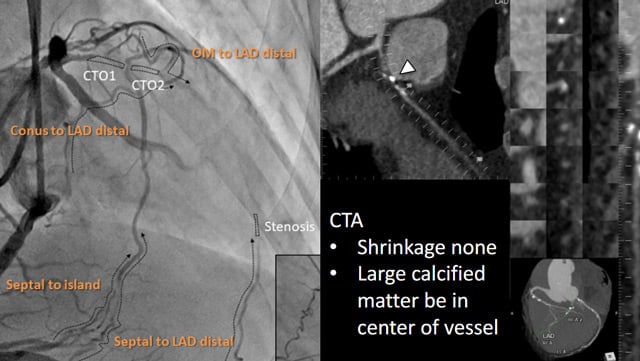
Broadening OPTIONs for LAA closure: innovations and outcomes
20 May 2025 – From EuroPCR 2025
Explore the latest insights into LAA closure from EuroPCR 2025. This session highlights results from the OPTION trial—the largest RCT comparing LAAC (with Watchman FLX) to DOAC therapy in AF patients undergoing ablation. The findings? Comparable stroke prevention at 3 years, with a 56 % reduction...
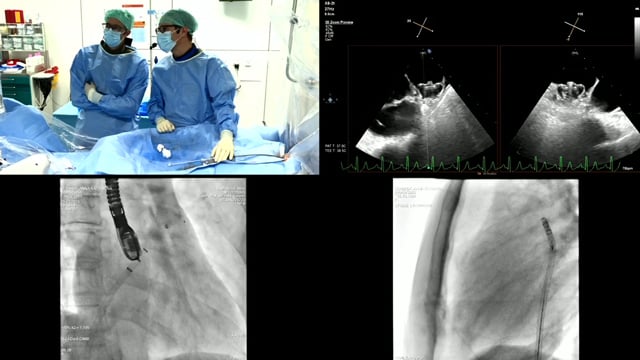
Cardiogenic shock and high-risk interventions with percutaneous mechanical circulatory support: new evidence and insights
20 May 2025 – From EuroPCR 2025
This EuroPCR 2025 session offers a comprehensive update on cardiogenic shock and high-risk PCI, featuring expert analysis of the DanGer-SHOCK and ECLS-SHOCK trials, new insights one year after DanGer-SHOCK, and practical considerations for managing PCI in patients with severely reduced LVEF. Expect to gain a deeper...
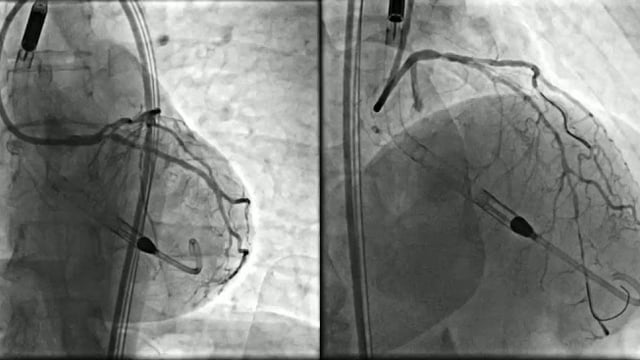
Troubleshooting in left main stenting: the role of imaging and physiology
20 May 2025 – From EuroPCR 2025
Expand your expertise on left main stenting by integrating intravascular imaging and physiology to improve outcomes. This session focuses on avoiding and managing stent deformation and optimal treatment of ostial left circumflex artery after crossover stenting, illustrated by clinical cases and expert commentary.
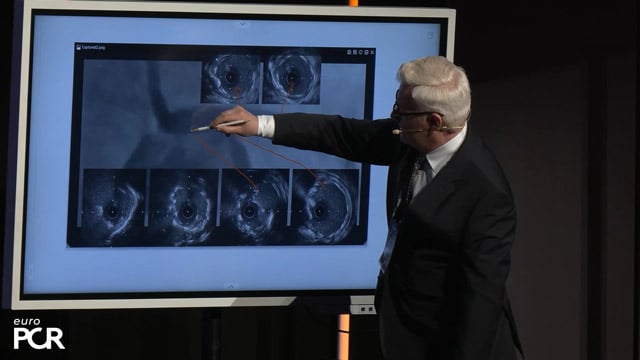
Challenges and solutions in an expanding TAVI world
20 May 2025 – From EuroPCR 2025
This EuroPCR 2025 session addresses key challenges and emerging solutions in today’s rapidly evolving TAVI landscape. It presents the latest evidence on valve replacement in low-risk patients with aortic stenosis, alongside strategies for navigating the complexities of lifetime management in TAVI candidates. The programme features a...
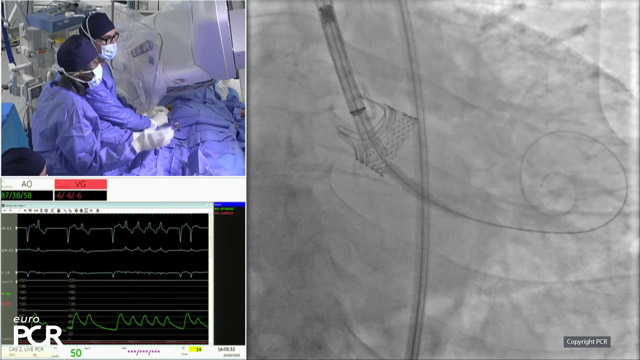
My approach for a calcified bifurcation lesion
20 May 2025 – From EuroPCR 2025
This session provides a comprehensive approach to managing calcified bifurcation lesions. Learn how to interpret angiographic and intravascular imaging, plan interventions with appropriate devices for simplicity and safety, and evaluate final results to understand their clinical impact through real cases.
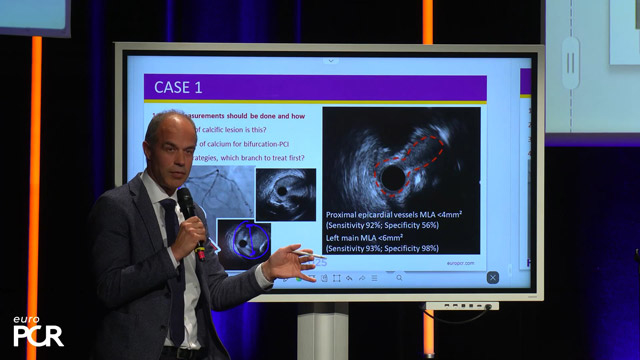
China experience in TAVI evolution
22 May 2025 – From EuroPCR 2025
This session highlights key innovations and recent research from China in the field of transcatheter aortic valve implantation (TAVI). Leading cardiovascular specialist present new data on pacing strategies, comparing left bundle branch area pacing with traditional right ventricular pacing in TAVI patients. They also explore the use...
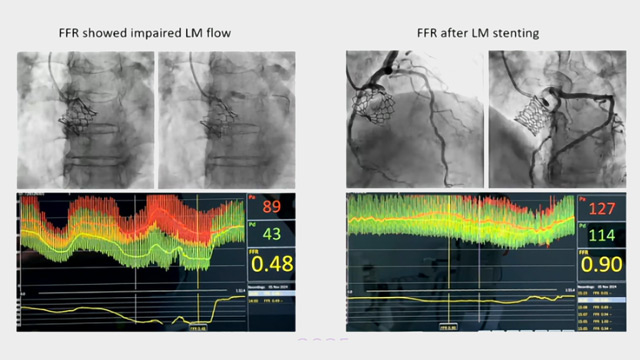
Mitral and tricuspid hotline: long-term outcomes
20 May 2025 – From EuroPCR 2025
Review long-term outcomes of transcatheter edge-to-edge repair (TEER) for mitral and tricuspid valve disease in this session. Highlights include pivotal trial results, mortality risk prediction tools, management of procedural failures, and real-world data, providing comprehensive insights into patient prognosis and therapeutic impact.
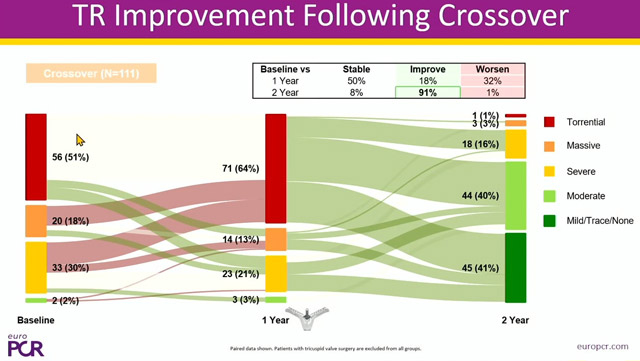
Optimising CTO outcomes by lesion selection
21 May 2025 – From EuroPCR 2025
Optimize chronic total occlusion (CTO) PCI outcomes through lesion selection strategies. This session reviews coronary calcium patterns via CT, target vessel considerations, distal vessel remodeling, imaging-guided versus conventional approaches, and complex lesion cases.
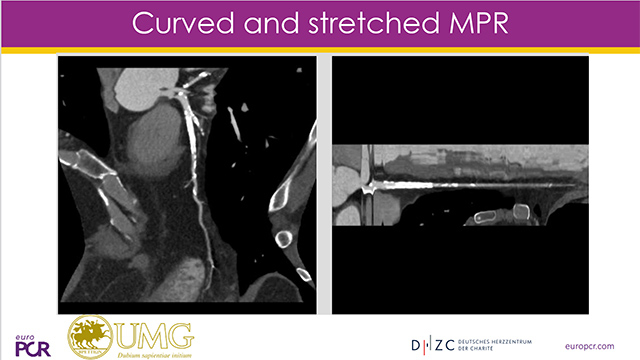
Challenging scenarios in acute coronary syndrome
20 May 2025 – From EuroPCR 2025
This session presents challenging acute coronary syndrome (ACS) cases with unusual presentations and complications. Learn from cases involving myocarditis mimics, coronary aneurysms, rescue fibrinolysis during PCI, and STEMI complicated by cardiogenic shock, highlighting diagnostic and therapeutic nuances.
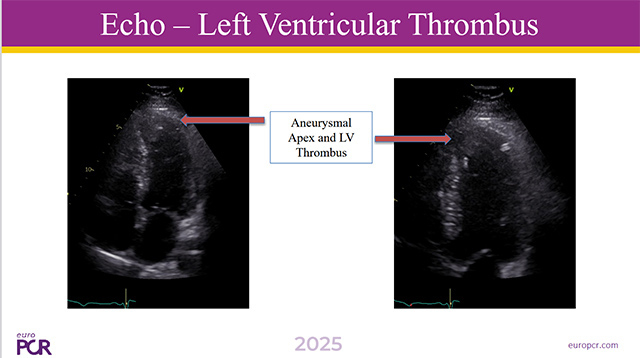
Enhancing knowledge in diagnosis ANOCA
21 May 2025 – From EuroPCR 2025
Enhance your understanding of the diagnosis of ANOCA through advanced diagnostic techniques. Topics include coronary endothelial function assessment, exercise stress testing for microvascular dysfunction, acetylcholine-induced coronary responses, and the clinical implications of myocardial bridge in provocative testing.
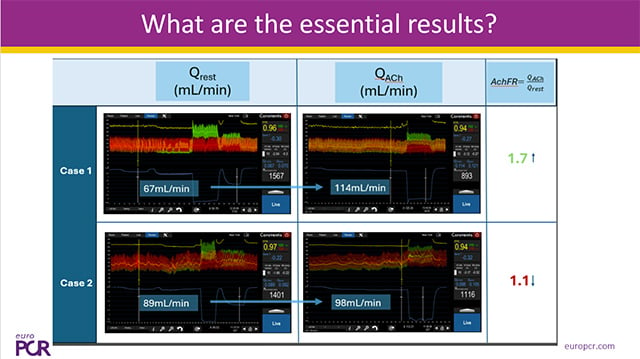
Managing challenging vasculature to successfully deliver TAVI
21 May 2025 – From EuroPCR 2025
This session addresses the challenges of delivering TAVI in patients with complex vascular anatomy. Explore expert strategies for performing TAVI post-coarctation surgery, valve-in-valve procedures, and managing difficult aortic arch anatomies including bicuspid valves with large annuli and tortuous vessels.
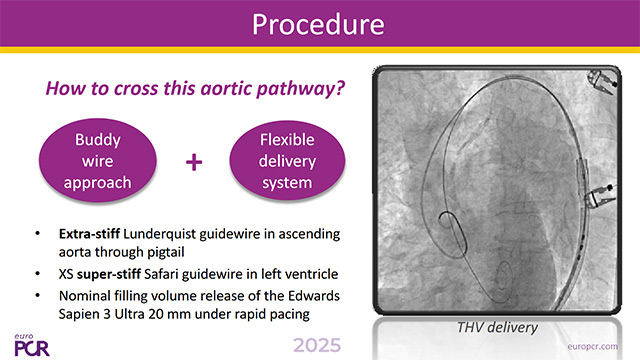
High-risk left main PCI
21 May 2025 – From EuroPCR 2025
Delve into the complexities of high-risk left main PCI with a focus on procedural planning and managing unexpected challenges such as spontaneous coronary artery dissection. Learn valuable strategies including contingency planning to optimize outcomes in complex interventions.
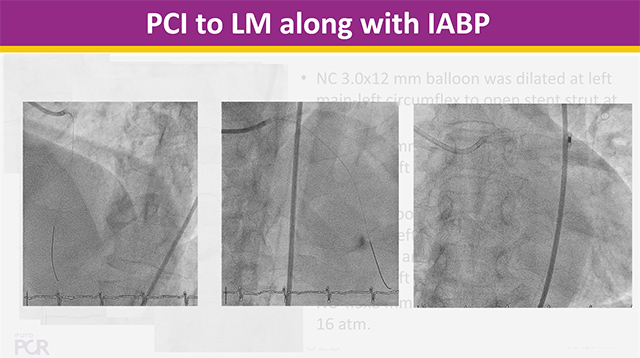
How to deal with left main culprit in NSTEMI
21 May 2025 – From EuroPCR 2025
This session offers a cross-geographic exchange on managing left main culprit lesions in NSTEMI patients. Learn different interventional approaches, risk evaluation for periprocedural complications, and diverse PCI management strategies tailored to this complex subgroup.
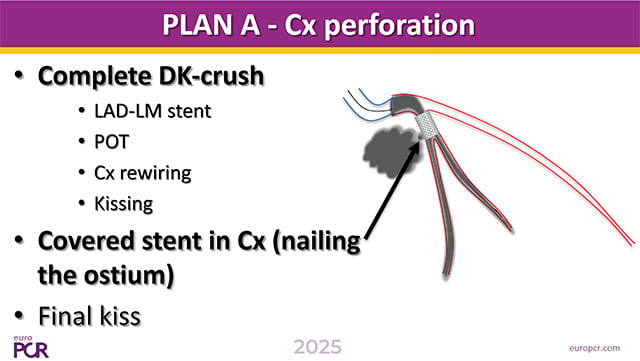
Management of heavy calcified bifurcation lesions
21 May 2025 – From EuroPCR 2025
This session focuses on the management of heavily calcified bifurcation lesions using advanced techniques such as IVUS guided guidewire recrossing and orbital atherectomy. Learn step-by-step approaches to tackle complex calcific coronary bifurcations and improve procedural success.
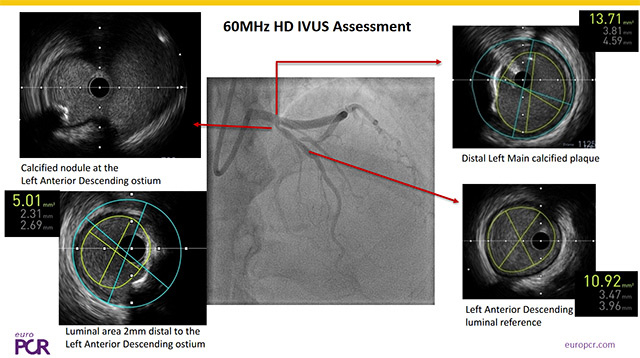
How imaging can improve efficiency in CTO PCI
21 May 2025 – From EuroPCR 2025
Discover how advanced imaging techniques improve efficiency in CTO PCI procedures. This session features IVUS-guided antegrade dissection, angio-CT guided retrograde recanalisation, and complex cases involving anomalous anatomy and multiple bifurcations.
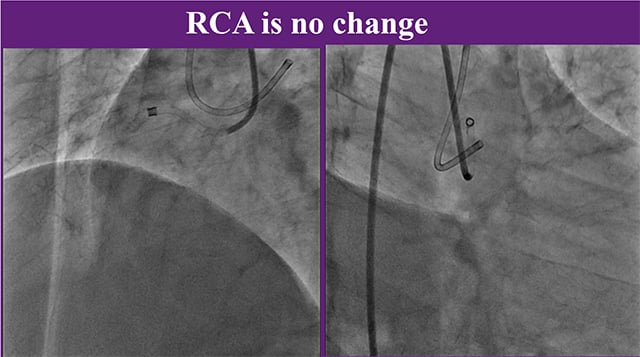
Tips for challenging TAVI scenarios
21 May 2025 – From EuroPCR 2025
Explore expert tips for navigating challenging TAVI scenarios including cases with stent entrapment, extremely large annuli, and rare anatomical conditions like Klippel Feil syndrome. Understand approaches for intraannular valve prosthesis implantation in complex coronary anatomy.
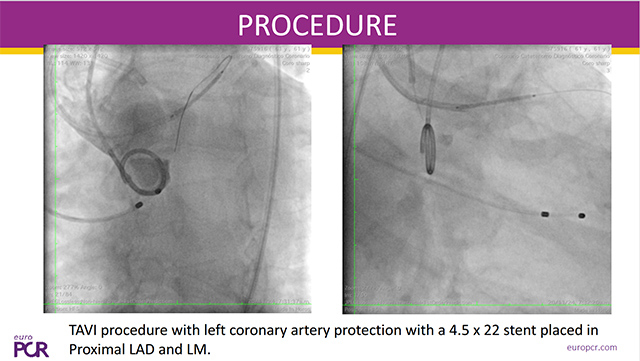
Calcified lesions: preparing for the battlefield
21 May 2025 – From EuroPCR 2025
Prepare to tackle calcified coronary lesions with expertise in imaging interpretation and calcium modification tools. This session covers IVUS and OCT use, preparation techniques, and enhancing team communication to optimize procedural outcomes in complex cases.
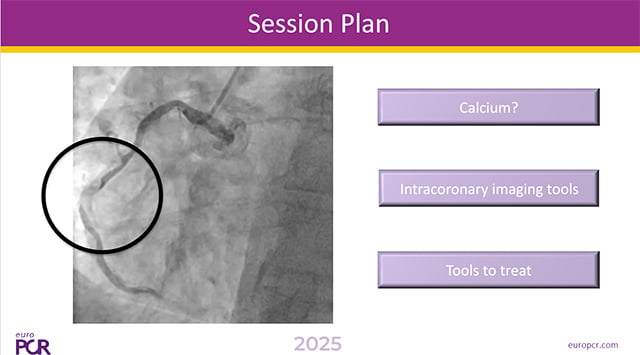
Chronic coronary syndrome with low ejection fraction and left ventricle support
21 May 2025 – From EuroPCR 2025
This session examines the management of chronic coronary syndrome in patients with low ejection fraction, emphasizing the role of left ventricular support. Topics include risks of intracoronary imaging, pharmacological facilitation, mechanical circulatory support, and alternatives like LAVA-ECMO.
